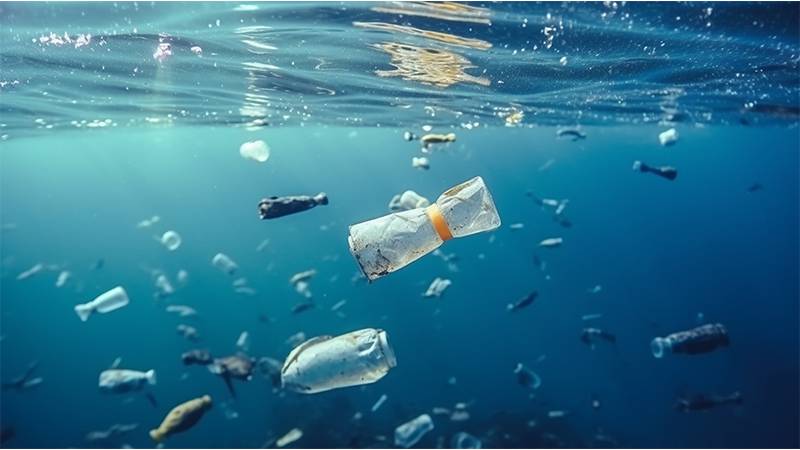In an innovative attempt to tackle oceanic plastic pollution, scientists at North Carolina State University have genetically modified a bacterium to digest polyethylene terephthalate (PET), a widely used plastic that’s contributing significantly to marine pollution. This trailblazing project, spearheaded by NC State PhD candidate Tianyu Li, stands out as the inaugural endeavor to break down PET plastic in saline environments.
PET plastics are pervasive in modern society. They form the primary material for commonplace items like water bottles and many polyester-based garments. Li highlighted an alarming scenario wherein microfibers shed from polyester clothing during washing, leading to an influx of these microplastics in water systems. These microplastics then make their way to the ocean, exacerbating the already critical pollution levels. The National Renewable Energy Laboratory underscores the magnitude of the problem, revealing an annual production of over 82 million metric tons of PET plastics, with a disappointingly low recycling rate of only 15-35%.
In their effort to alleviate this pressing ecological issue, the NC State team synthesized a novel organism by merging the attributes of two bacteria species. Their method involved extracting DNA from a bacterium known for digesting PET (though it didn’t thrive in saline conditions) and integrating it into Vibrio natriegens, a saltwater-friendly, fast-multiplying bacterium.
The results, although still in their infancy, are promising. The genetically enhanced bacterium is capable of degrading a gram-per-liter concentration of PET in approximately 24 years. While this may seem lengthy, it’s a notable improvement compared to the natural decomposition rate of PET. For context, a regular PET water bottle might require several centuries to disintegrate under natural conditions. Both Li and NC State professor Nathan Crook concur that future research should be geared towards accelerating this decomposition process.
Professor Crook elucidated the organism’s current limitations, noting that a hundredfold increase in its efficiency is requisite for any potential commercial or large-scale environmental applications. Yet, he remains optimistic about refining the bacterium over the next decade, saying, “We’re hoping to essentially throw the kitchen sink at it… and we might get lucky.”
To help address the pollution problem, researchers engineered an organism that combined features of two different bacteria species. They took DNA from a microbe known to eat PET that did not grow well in salt water, and they put it in Vibrio natriegens, a rapidly reproducing saltwater microbe.
According to WUNC 91.5, another ambitious target for the team is to adapt the bacterium to convert the degraded PET remnants into marketable products or molecular compounds, thereby adding an economic incentive to the environmental benefits.
Li’s intensive research has provided insight into both macro and micro forms of PET degradation. Interestingly, the tinier the plastic particle, the swifter its degradation by the modified bacteria.
While the research has showcased encouraging outcomes, Li acknowledges that this microbe alone won’t be a panacea for the colossal plastic pollution crisis. She emphasizes that a multidimensional approach is imperative. Moreover, she’s become more conscientious about her plastic consumption, advocating for more sustainable personal habits.
The National Science Foundation has financially backed this groundbreaking project.
More inspiring green news similar to this:


